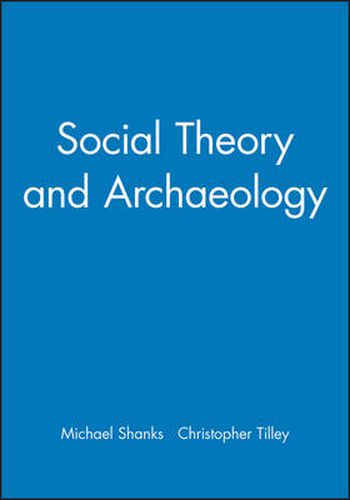Readings Newsletter
Become a Readings Member to make your shopping experience even easier.
Sign in or sign up for free!
You’re not far away from qualifying for FREE standard shipping within Australia
You’ve qualified for FREE standard shipping within Australia
The cart is loading…






Archaeological theory and method have recently become the subject of vigorous debate centred on the growing realization that archaeological theory is social theory and as such can be looked at by means of a wide variety of sociological frameworks, such as structuralism and post-structuralism, Marxism and critical theory. In this analysis, Shanks and Tilley argue against the functionalism and positivism which result from an inadequate assimilation of social theory into the day-to-day practice of archaeology. Aimed at an advanced undergraduate audience, the book presents a challenge to the traditional idea of the archaeologist as explorer or discoverer and the more recent emphasis on archaeology as behavioural science. The authors examine and evaluate the new possibilities for a self-reflexive, critical and political practice of archaeology, productively linking the past to the present.
$9.00 standard shipping within Australia
FREE standard shipping within Australia for orders over $100.00
Express & International shipping calculated at checkout
Archaeological theory and method have recently become the subject of vigorous debate centred on the growing realization that archaeological theory is social theory and as such can be looked at by means of a wide variety of sociological frameworks, such as structuralism and post-structuralism, Marxism and critical theory. In this analysis, Shanks and Tilley argue against the functionalism and positivism which result from an inadequate assimilation of social theory into the day-to-day practice of archaeology. Aimed at an advanced undergraduate audience, the book presents a challenge to the traditional idea of the archaeologist as explorer or discoverer and the more recent emphasis on archaeology as behavioural science. The authors examine and evaluate the new possibilities for a self-reflexive, critical and political practice of archaeology, productively linking the past to the present.